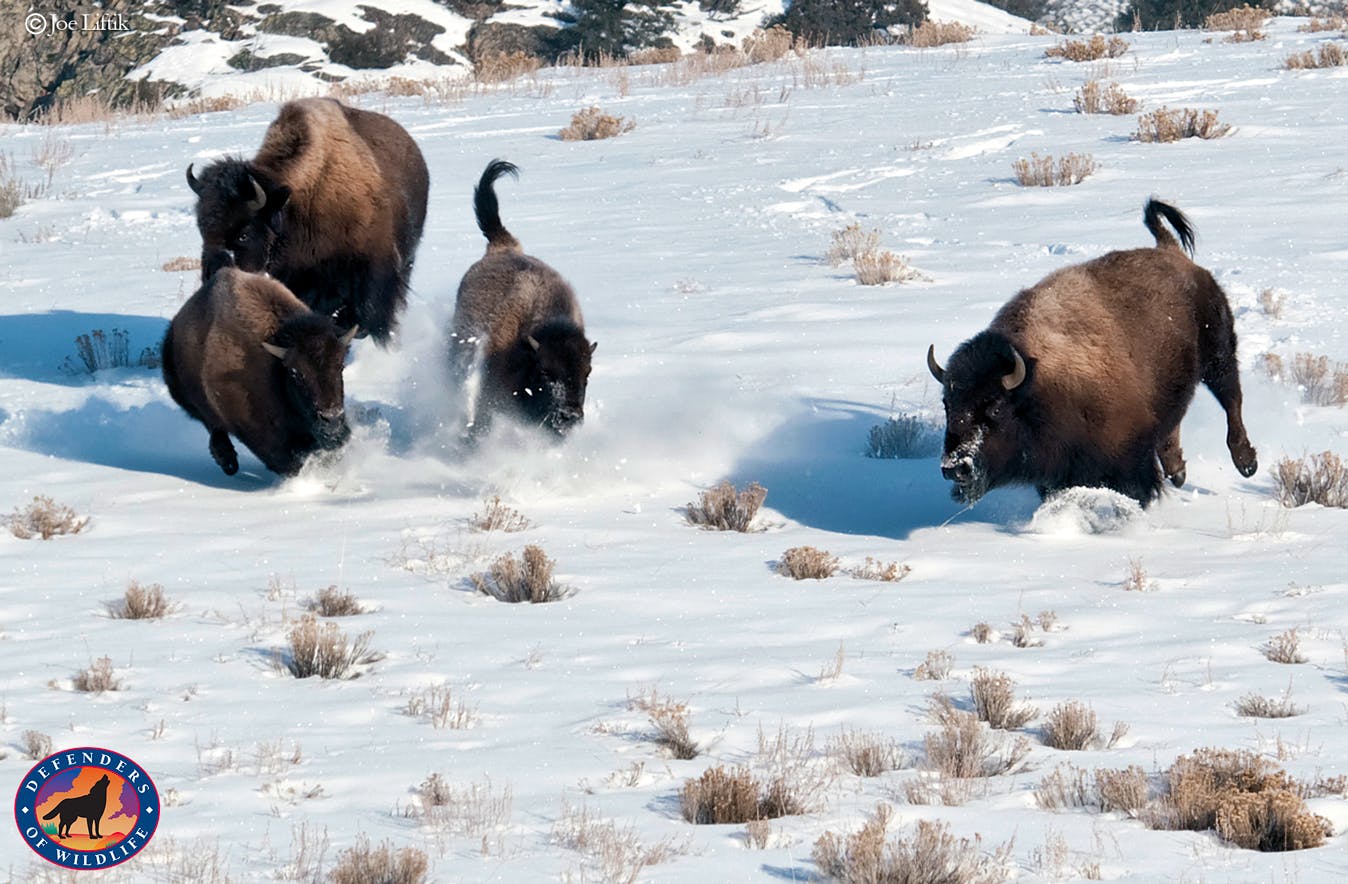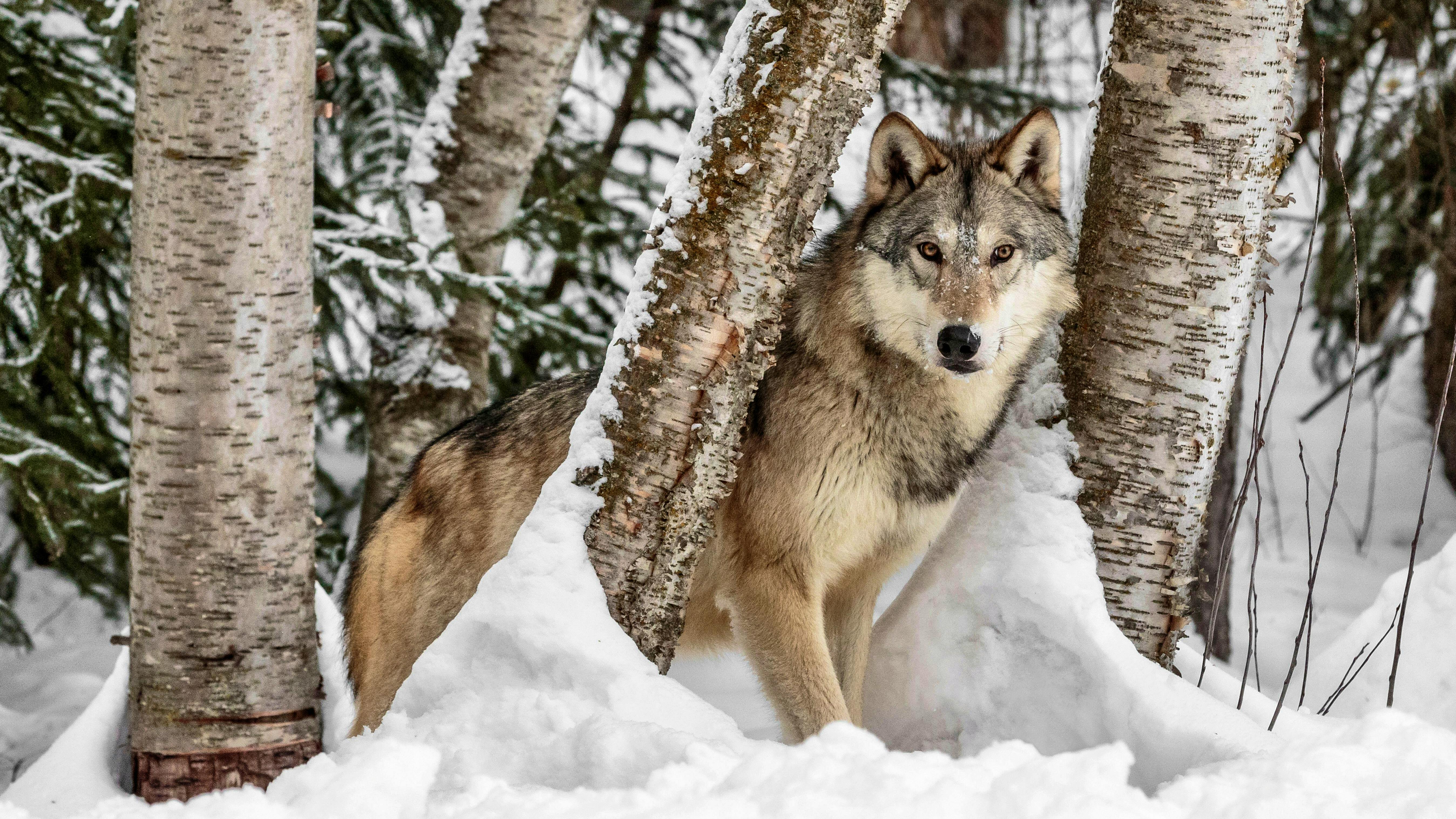Your weekly roundup of wildlife news from across the country.
Slaughter of 40 Yellowstone bison stopped:
A good first step for our national mammal! Montana Governor Steve Bullock ordered the temporary stop of the ship-to-slaughter campaign for all Yellowstone bison. This ban will remain in effect only until 40 bison that have been quarantined for the last year are transferred to another facility. Bison are quarantined to see if they have brucellosis – a disease that affects cattle, though there has been no documented case of bison-to-cattle transmission. Before this statement, these 40 bison were almost certainly going to be shipped to slaughterhouses – a practice utilized by officials to keep Yellowstone bison population numbers within an arbitrarily-set limit. While this reprieve is a good start, we continue to call for the implementation of the National Park Service’s proposed 2016 plan that would send many bison to Fort Peck Indian Reservation for quarantine and relocation rather than slaughter.
Learn more about this important step >>>
Hottest Year on Record:
Global temperatures have continued to rise, making 2016 the hottest year in history. Already, climate change is causing plenty of problems for people. But just as worrisome are the impacts to wildlife and the habitats on which they depend.
Read what the scientists are saying >>>
Watch the movements of tagged cutthroat trout:
This animation illustrates the movement of a tagged fish during the summer of 2015! The data will help scientists develop a plan to help restore Yellowstone cutthroat trout populations.
Survey shows the elk herd is stabilizing:
A steady population of Northern Yellowstone elk was observed for a third year in a row. This means the herd is no longer in decline! The January survey done by a collection of groups discusses the elk count and the importance of location for the growing herd.
Click here to read more about the elk survey >>>
Another success story from the ESA!
Local communities in Arizona rallied to help the recovery of lesser long-nosed bats. These bats play an important role because of their unique position within our ecosystem. This is the first bat species to be proposed for delisting and is a huge moment for the bat conservation community!
Learn more about how the community helped >>>
The Trump Administration Muzzles Federal Science Agencies:
The Trump administration has had a busy week and there are disturbing signals that it is planning to halt important and ongoing scientific work, and to prevent federal departments and agencies from communicating their results to the public.
Read more about this affects our work and how you can stay up to date >>>
Trump’s Order on the Border Wall and how it affects Wildlife:
Wildlife and habitat are on the line because of impacts of the new administration’s immigration policy. The executive order to finish the remaining 1,000 miles will have a huge impact on biological unity, connectivity along the border, and habitat disruption.






Follow Defenders of Wildlife
facebook twitter instagram youtube tiktok threads